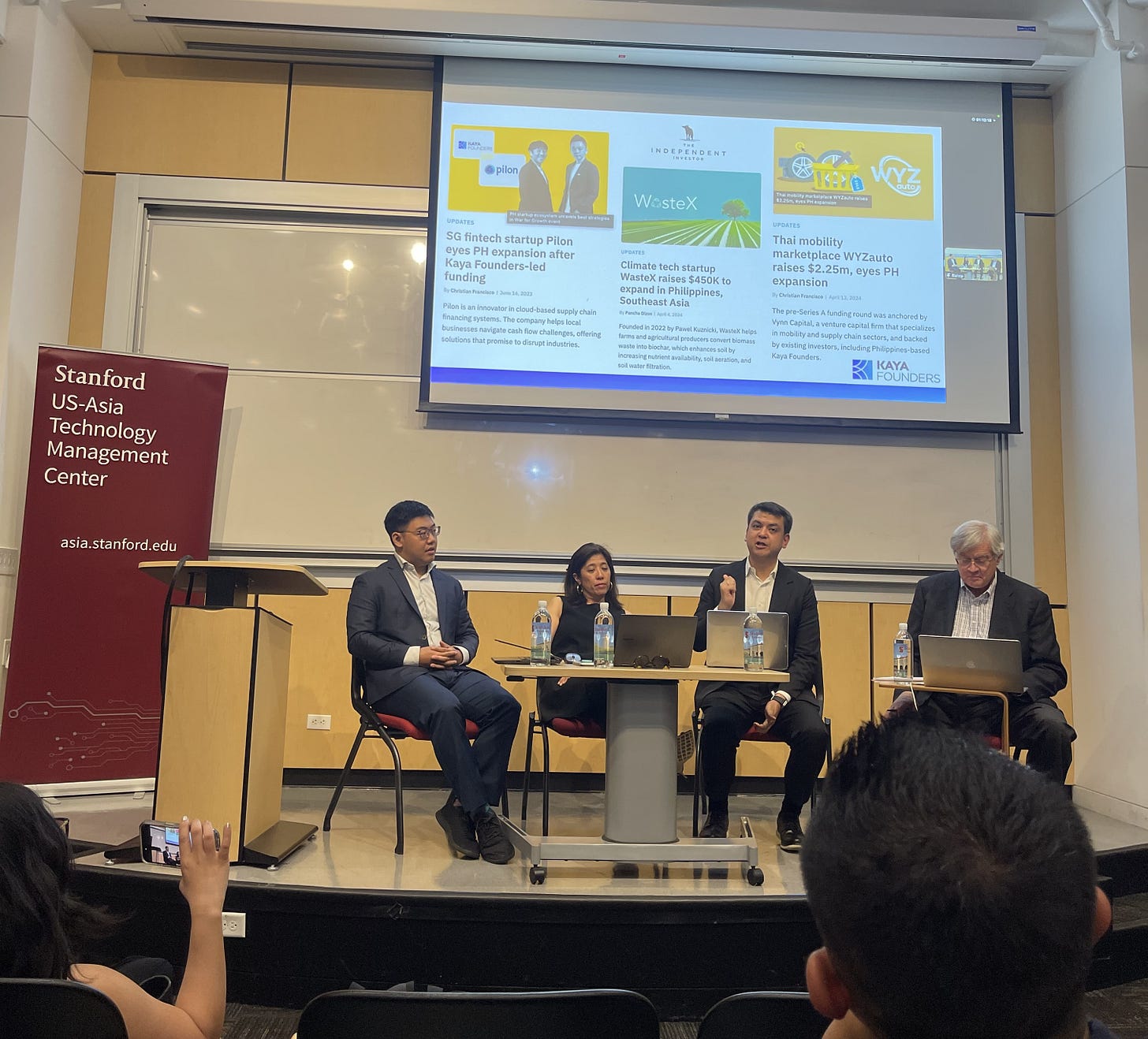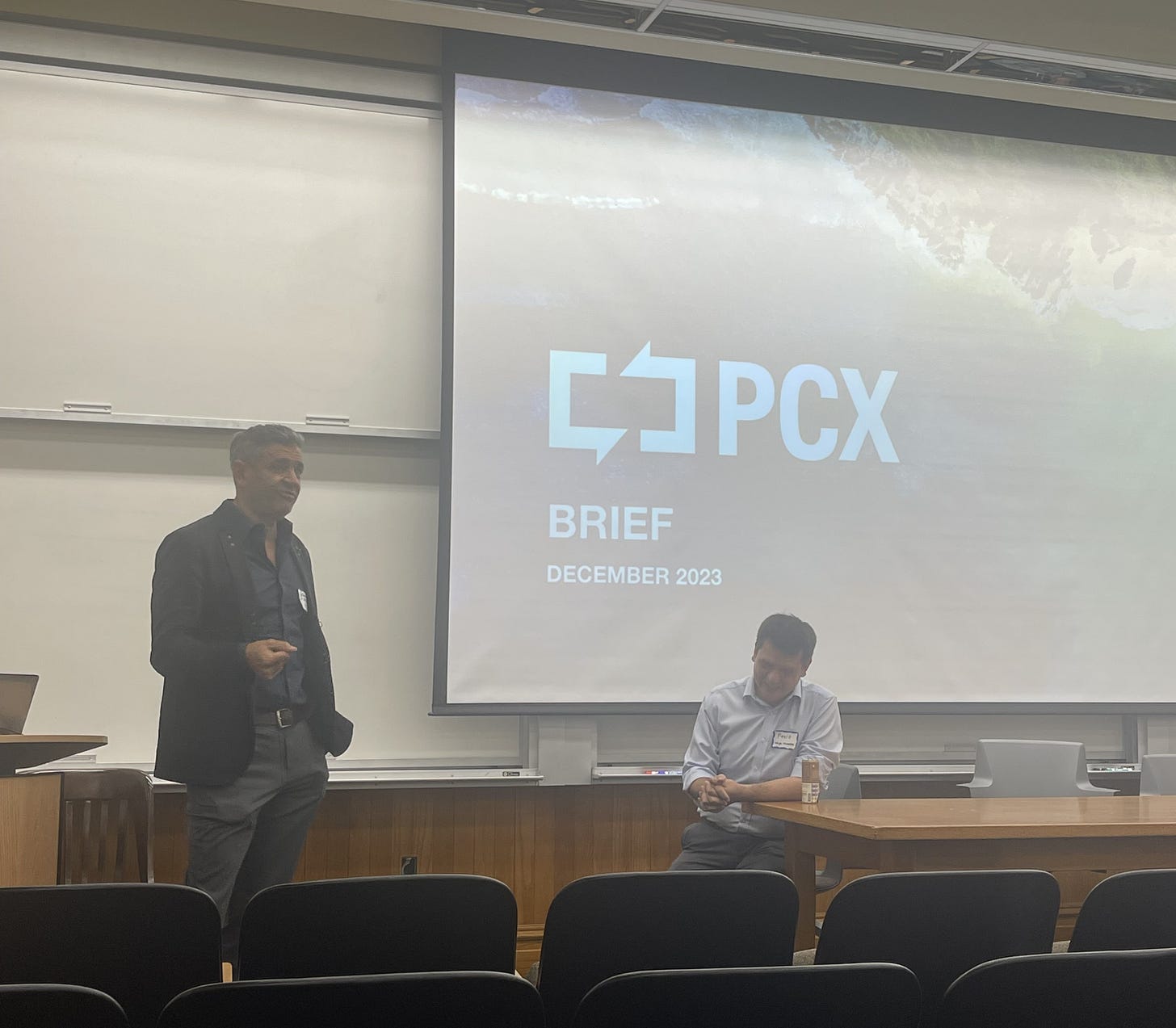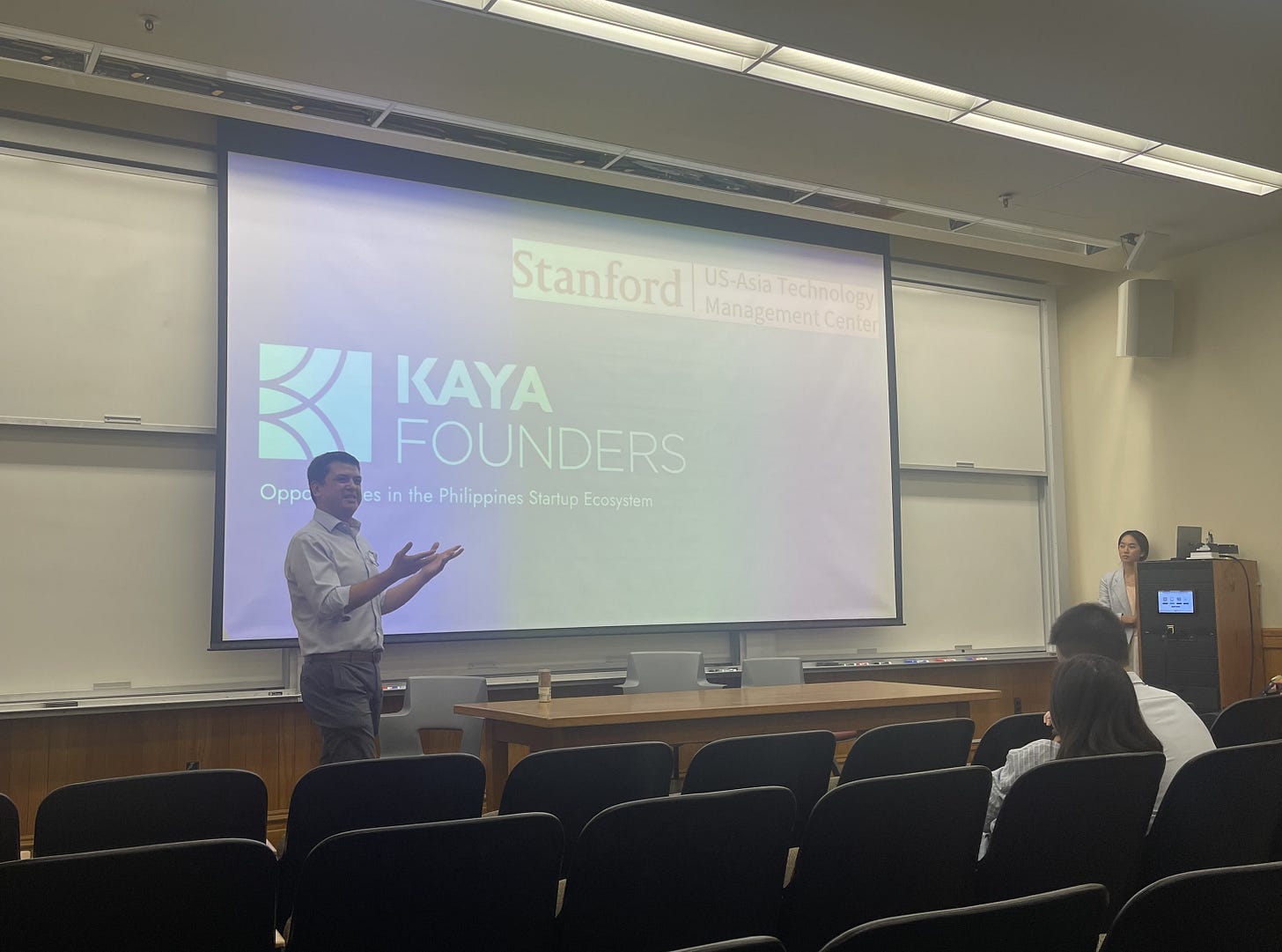Last week, I was fortunate enough to be invited to join Paulo Campos (Founder of Kaya Founders), Kendrick Kho (Founder of Fourth Realm Partners), and Christina Laskowski (Alquemie Ventures) at Stanford to broadcast their discussion through The Independent Investor media platform. The mission of the trip was clear: to bridge talent and capital back to the Philippines and leverage its growing startup ecosystem.
Why the Philippines?
As Paulo presented in the talk (and as stated in the e-Conomy SEA report by Google, Temasek and Bain):
The country’s digital economy is expected to grow at a double digit rate to $35b by 2025.
Macroeconomics remain strong.
The Philippines has a unique window of opportunity with the country’s attractive demographics (average age of 25.69) and rising middle class.
Taken from Macrotrends
The Southeast Asian digital economy has grown eightfold over the past eight years to over $100 billion, providing opportunities for local companies to leverage this regional growth.
Southeast Asia venture capital has ample dry powder to invest in emerging startups, as shown in the graph below:
The Philippines is forecasted to be the fastest growing digital economy until 2030.
The Philippines is is expected to grow 3x to 6x by 2030.
With all that said, none of this would be possible without the talent that our country is attracting, and in the presentation Paulo broke down what he believes are the talent drivers of our growing startup scene:
Corporate Executives: These are experienced corporate leaders who aspire to seek new opportunities and gain a sense of freedom to pursue their own projects.
Sea Turtles: We have seen a number of highly qualified Filipinos who are already established in their respective first world jobs, but see the opportunity to start something new back home.
Adopted Filipinos: These are the foreigners taking big risks in our country, and leaving cushy jobs to build something new in the Philippines. We are starting to see this with foreigners such as Andrew Koger (Buko Ventures/Helix Pay), Bela and Nishant D’Souza (Edamama), Jaime Gonzalez (PickUp Coffee), and Sebastian Digrande (PCX) and others.
Sebastian Digrande sharing PCX’s mission to solve plastic waste through carbon credits
2nd Gen Tech Talent: There are a number of founders who have left regional or local early-stage companies like Grab, Lazada, and Zalora to forge new paths.
Paulo Campos sharing Kaya Founders’ mission at Stanford.
At The Independent Investor, we believe storytelling can drive awareness of Philippine startup activity and attract more independent capital to the country, bringing more success stories. This flywheel effect will benefit the country in the long run.
At the second half of the lecture, Kendrick Kho presented his views on the challenges we face and what needs to change for the Philippines to improve its standing on the world stage:
Culture
Lack of Specialized Talent
Lack of Experienced Functional Leaders
The last two are extremely important, but countries can change their trajectory with the right policies and government support. For example, specialized talent is nurtured by a strong educational system, while experienced functional leaders emerge as a byproduct of education.
Strong Education → Specialized Talent → Experienced Function Leaders
This doesn't happen overnight, but with the right educational and training support from both the private and public sectors, as Christina Laskowski pointed out, it can occur over time.
Culture is more challenging to cure, but not impossible.
Kho stated that the Philippine hustle culture isn’t as strong and it takes a shift in mindset to change. In a separate lecture, Martin Gonzalez said it best when he made reference to Michele Gelfand’s book Rule Makers, Rule Breakers: How tight and loose cultures wire our world. The summary of it is that countries are either tight or loose, and is broken down as follows:
Loose Cultures:
Evidenced by more creativity and a higher percentage of immigrants.
Are more open to change and different ideas.
Exhibit tolerance towards diversity and accept different cultures and norms.
Promote freedom of thought and speech.
Failure is accepted and encouraged.
Tight Cultures:
Tend to have less creativity and adhere to more conservative norms.
More structured workforce.
A higher percentage of residents who attend religious services, who promote in-group loyalty, and refrain from risk-taking (black-and-white view of right and wrong).
According to Gelfand “tight cultures have strong social norms and little tolerance for deviance, while loose cultures have weak social norms and are highly permissive.'“
Failure is taboo and discouraged.
When looking at the Philippines, we find an extremely tight culture where social acceptance reigns supreme. This makes it challenging for individuals to take unique risks without facing criticism from friends and family. People often criticize businesses and startups and only support them when they prove to be successful. This also makes it challenging to recruit top talent in the early stages when there is more uncertainty. Compare this to Silicon Valley, where failure is celebrated, and it's not uncommon to encounter founders on their 3rd or 4th venture. Their past history of failure is more of a badge of honor than an indicator of future results.
Here is a video of Naval Ravikant that sums it up:
Note that Naval was respected throughout his career and investors and other entrepreneurs continued to believe in him despite all his failures.
Silicon Valley is special in the sense that people are extremely open-minded and supportive of one another, regardless of their backgrounds. Nobody asks for NDAs, and deals are often done with a simple handshake. Trust permeates the community, and all ideas are given fair consideration. That’s what makes it special.
I couldn’t agree more with Kendrick, and the Philippines might be the opposite of places like Silicon Valley. That said, with the influx of more open-minded corporate executives, sea turtles, adopted Filipinos, and second-generation tech talent, we are confident the culture will shift in the right direction. We have seen this happen in places like China, Indonesia, India, and Singapore, whose ecosystems thrived despite their tight social norms.
The Independent Investor was created to leverage our unique position as a country and strike the right balance in culture, encouraging more Filipinos in the Philippines and around the world to embrace collaboration and risk-taking to pursue their own ideas. With the support of our angel community and independent institutional investors such as Kaya Founders, we are confident it can happen.
If you are a founder, investor, educator, or any form of enabler, please feel free to reach out. We look forward to hearing your story.
ABOUT THE AUTHOR
Keenan Ugarte is Managing Partner at DayOne Capital Ventures, an independent private holding company based in the Philippines that partners with entrepreneurs across a wide range of industries. He is the Co-Founder and Director of The Independent Investor and Co-Founder of Cocopan.










